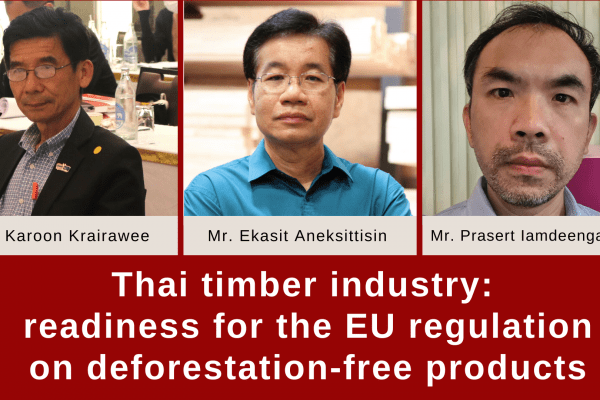As an agricultural country, Thailand is alerted by this new EU regulation. Recently, on 14 Dec., Prime Minister Prayut Chan-o-cha urged all relevant agencies to follow up on any development closely.
In this article, TEFSO talked with representatives from the leather and the food industry to discuss their views on EU regulation and their sustainable supply chain management.
With high export volume to the EU, leather industry is familiar with sustainable supply chain management and is not concerned about the new EU regulation
There are three main groups of leather export; leather for shoes, automotive and furniture.
‘My company supplies leather to major brands like Nike and Adidas; other members of our group supply to the automotive industry like Mercedes, Toyota and Honda.’ – representative of Leather Industrial Group, Federation of Thai Industries said.
Export of cocoa, coffee and corn to the EU are low to non-existent, but the group has some concerns in case the EU expands the product scope
‘For now, deforestation-free regulation might not impact much because Thailand has never exported beef or pork to the EU. There’s some export of coffee but in a minimal quantity. So does cocoa which is not Thailand’s agricultural produce though there has been some initiative to promote it. We still have some concerns in case the EU expands the product scope in the future.’ – representative of Food Industrial Group, Federation of Thai Industries said.
Sustainable supply chain management is nothing new for the leather or food industry
The Leather Industrial Group and the Food Industrial Group confirmed their familiarity with sustainable supply chain control.
Overall, the leather industry is ready for EU regulation because, for a long time, they have had a certification system to comply with major brands from the US and EU.
‘In 2017, our customers; Nike, Timberland and Adidas launched a Global Policy to take only traceable leather certified by recognized third party auditors. These major brands only allow tanneries to use leather from certified farms. There’s a certification system like the Leather Working Group. As an estimation, I’d say 30% of leather producers in Thailand are certified.’
‘In food industry, there’s Good Agricultural Practices (GAP) managed by the Ministry of Agriculture and Cooperatives. GAP verifies legal and sustainable agricultural production. For most products, GAP is voluntary; only five are required.’
Concern over small-scale operators who do not have capacity to get certified
‘In food supply chain, there’re still many uncertified small-scale farmers. Without certification, they might have difficulties proving that their production is sustainable. Big companies like CPF and Betagro have stepped in to help farmers in their networks to get certified, but there’s still a lack of government support.’
‘GAP has existed for more than ten years. If then the government had supported farmers to get certified, farmers would be readied for the EU regulation by now and would not have to wait for help from big companies.’


